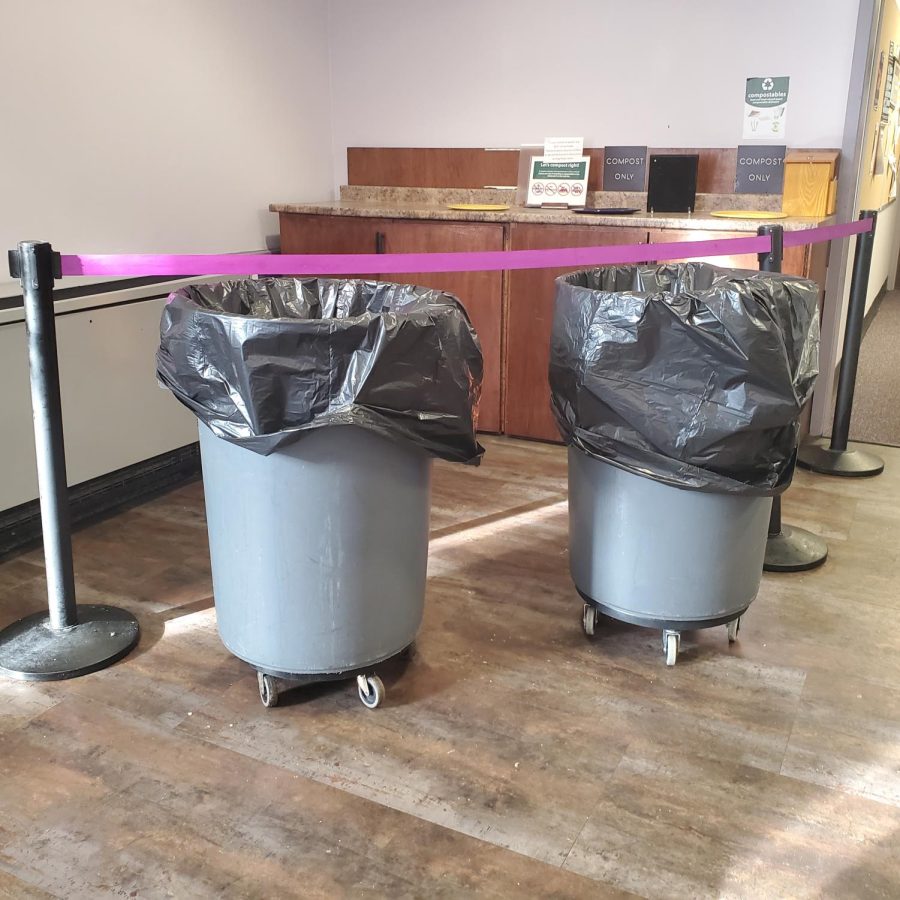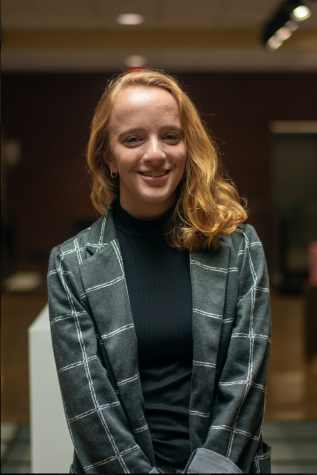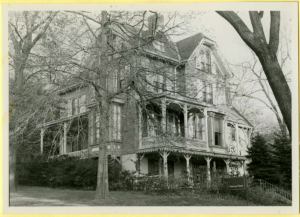Chatham composting halted due to supply chain issues; students express disappointment
Trash bins in Anderson Dining Hall with black bags indicate that post-consumer food waste is not being composted. Photo Credit: Riley Hurst Brubaker
October 20, 2021
As Anderson Dining Hall continues its return to pre-COVID practices, Shadyside’s composting program is halted due to supply chain issues, and some students are unhappy with the lack of communication about it.
Sustainability is one of the many things that Chatham University is known for at the national level. However, the pandemic has impacted the way in which Chatham and Parkhurst Dining Services keep dining on campus environmentally friendly.
“With the pandemic, there have been serious supply chain issues for all kinds of products,” said Mary Whitney, Chatham’s head of sustainability. “Those problems are ongoing and [compostable] product availability changes quickly and unpredictably.”
Items such as the Greenware compostable bags, plates and cups are especially difficult to get at the quantities and prices needed for Parkhurst Dining Services, according to Whitney.
Parkhurst General Manager Courtney Blood said that Anderson Dining Hall is continuing to collect compostable food and other items pre-consumer but has not started post-consumer composting. Non-compostable items in the dining room and the supply chain issues make post-consumer composting challenging.
Many students feel that, despite the shortages, Parkhurst could be doing more to encourage sustainability in the dining halls, and that it should communicate with students about any changes.
“The clear cups that you get from Café Rachel, they used to be compostable, but now they’re No. 1 recycling so we can’t compost them,” Searrah Bierker ‘24 said. As an eco-representative for the sustainability department, she works to educate and engage students in sustainability on campus.
“I understand that it may be because of supply,” said Kalea Gregoris ‘24. “But if you’re going to change things like that, I think something needs to be put out because it’s heavily advertised, when you come to campus, that everything is compostable.”
Non-compostable materials such as plastics and metals are considered contaminants by waste processing plants. These materials cause otherwise compostable waste to be sent to the landfill.
“I think the best thing we can do right now is train students to look at the bottom of the cup. If it’s a No. 7 and says ‘certified compostable’ then it can be composted. If it’s No. 1 plastic, it should be recycled,” explained Goldie Seddon ‘21, another eco-representative.
Seddon said that a plan is in place to train students on what can or cannot be composted or recycled to reduce the chances of contaminating compostable waste with the non-compostable products.
Seddon is hopeful that once that occurs, Parkhurst will bring back the compost bins that were previously in Anderson Dining Hall.







